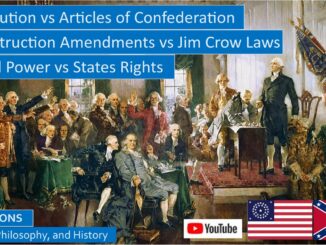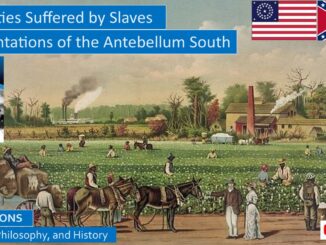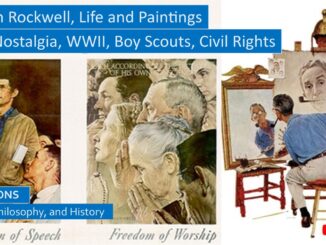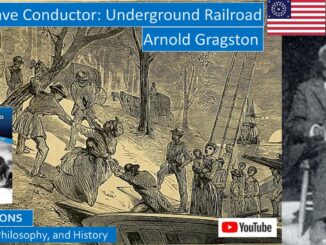
States’ Rights v Federal Power From the Nation’s Founding to Civil War, Jim Crow, and Civil Rights Movement
The Constitution was drafted to correct the many weaknesses of the Articles of Confederation. Congressmen now swear allegiance to the United States rather than to their native states, as was done under the Articles. The Constitution grants the Federal government not only the power to levy taxes, but also to collect them, as well as sole control over trade and commerce. The Constitution establishes a Federal court system that can override state court decisions if there is a conflict. The US Congress, unlike the Confederation Congress, can pass routine legislation with a simple majority vote. […]









